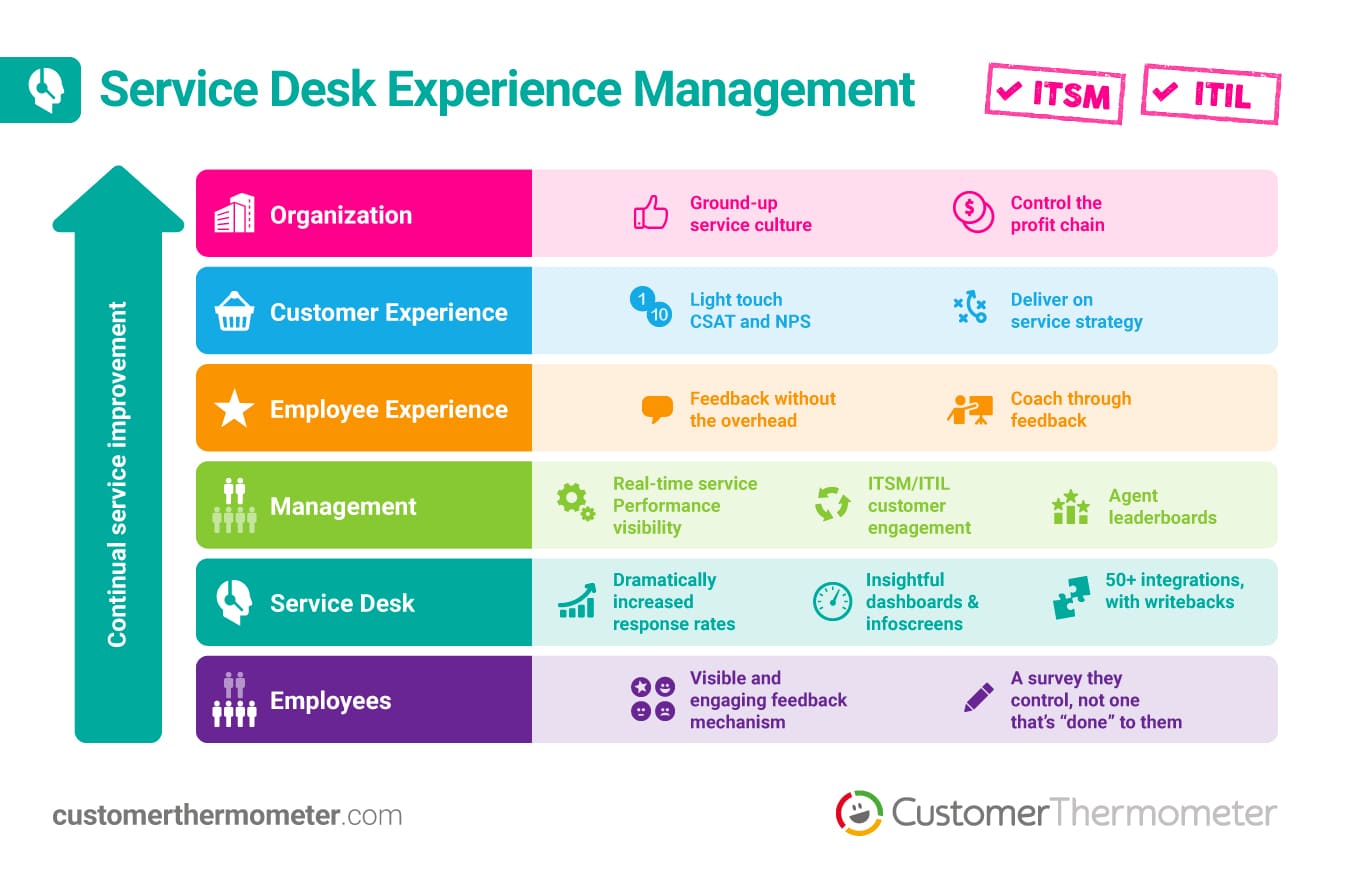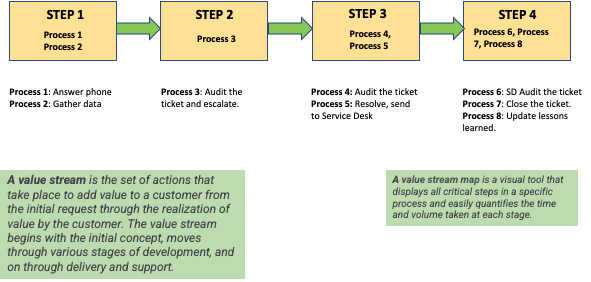Outsourcing Payroll: Maximize Efficiency And Minimize Expenses
페이지 정보

본문

✔ Outsourcing payroll might decrease administrative burdens, save time, and guarantee compliance with tax laws.
✔ Cost cost savings range from 18%-35% usually compared to in-house payroll processing.
✔ Payroll providers manage wage computations, tax filings, direct deposits, benefits deductions, and more.
✔ Businesses of all sizes advantage, especially those without devoted payroll staff.
✔ Choosing the best payroll service depends on business size, complexity, and need for combination with existing systems.
Every other Friday, Lisa braced herself for what had basically become a continuous source of stress: payroll. As the office supervisor for a growing home services business, she wore lots of hats: scheduling tasks, managing billings, dealing with HR jobs, and more. Payroll was just another obligation on her overruning plate, and in spite of her best efforts, something constantly appeared to go wrong.
Last pay duration, she overestimated overtime for two specialists, leading to a payroll correction that took hours to repair. The month in the past, a tax filing deadline slipped through the cracks, resulting in a costly late charge. And after that there were the consistent questions from workers about their paychecks - was my bonus offer consisted of? Why are my reductions different this week? Is there still time to fix my punch card? When will I get my W-2?
Lisa's stress level was through the roofing system. Something had to change. Accordingly, Lisa started exploring her choices. What if the company had somebody else handle payroll? By handing off payroll to a professional service provider, or, at the really least, upgrading their software application, she could get rid of the danger of mistakes, make sure compliance with tax laws, and maximize hours weekly to concentrate on running the business.
Does your payroll journey mimic Lisa's? Is payroll an obstacle that looms at the end of every other week? Luckily, you're not alone. In this article, we'll check out how outsourcing payroll works, the advantages it uses, and whether it's the ideal relocation for your service.
Outsourcing payroll is the practice of handing off payroll-related tasks to a third-party service provider who specializes in processing wages, taxes, and other compensation-related responsibilities. Instead of handling payroll manually - or handling numerous software services - organizations can count on specialists to guarantee employees are paid correctly and on time while remaining certified with tax laws.
Payroll service providers manage a series of tasks, including:
✅ Processing worker incomes and specialist payments;
✅ Calculating and filing payroll taxes;
✅ Managing direct deposits and paper checks;
✅ Handling reductions, garnishments, and advantages contributions; and
✅ Keeping up to date with ever-changing labor laws and tax rates.
Approximately 61% of companies outsource their payroll procedures. The choice to contract out the entire function or sector out parts, such as tax filings or direct deposit management, mostly depends upon business size, payroll complexity, and internal resources.
For bigger services with staff members throughout multiple states, payroll outsourcing can streamline compliance with different tax laws and guidelines. But small and mid-sized businesses also benefit - specifically those without a devoted payroll specialist. Given that payroll laws frequently change, contracting out ensures services remain certified without needing to continuously keep an eye on updates.
Years back, it was unheard of for companies to delegate payroll to an outside company. But today, advances in payroll technology make outsourcing a cost-effective and effective solution. Whether you require full-service payroll support or just aid with particular tasks, outsourcing can free up important time, decrease administrative headaches, and give company owners assurance. Statistics back this up. According to a PwC research study, business that outsource their payroll operates experience expense reductions of 18%-35%, typically.
Is outsourcing payroll the right option for your company? In the next area, we'll check out the key benefits and possible disadvantages to help you choose. If not, a best practice may consist of updating your internal software application. While we're prejudiced, a service like OnTheClock permits you to encapsulate time tracking, scheduling, and payroll in one platform. No more third-party costs, delays, or mistakes!
Don't let taxes get you down. Make payroll simple with OnTheClock!
Your hassle-free solution for payroll.
The Benefits of Outsourcing Payroll

Having your staff complete payroll might appear like a cost-savings measure; nevertheless, the truth is that it's frequently lengthy, complex, and vulnerable to pricey errors. Outsourcing payroll offers organizations a streamlined, secure, and cost-efficient service. Here's how it can benefit your company:
Save Time and Boost Productivity: Payroll isn't practically moving income - it includes tracking hours, computing taxes, managing benefits deductions, and ensuring compliance with ever-changing policies. For small companies, this obligation often falls on a bachelor or a little HR team, pulling focus far from strategic initiatives. Outsourcing payroll removes these lengthy tasks, maximizing your group to concentrate on growth and worker engagement.
Reduce Payroll Costs: Many little and mid-sized services find that contracting out payroll is more cost-effective than preserving an in-house payroll group. The expenditures connected with payroll software application, employee training, tax filing, and compliance management can accumulate quickly. By contracting out, business can access professional payroll services at a predictable regular monthly expense - typically less than the expense of hiring a full-time payroll specialist.
Minimize Errors and Ensure Compliance: Payroll mistakes aren't simply frustrating - they can cause substantial financial charges. From overestimating tax withholdings to missing out on due dates, errors can set off audits, fines, and dissatisfied workers. Payroll providers focus on tax compliance, remaining up to date on federal, state, and regional guidelines to guarantee precise filings and timely payments.
Enhance Data Security: Payroll data consists of sensitive staff member information, such as Social Security numbers and savings account information. Cybersecurity hazards and internal fraud risks make payroll security a leading concern. Professional payroll companies purchase advanced encryption, safe and secure cloud storage, and multifactor authentication to keep your business's financial data safe.
Avoid Payroll Disruptions: If your internal payroll specialist takes a getaway, gets ill, or leaves the business, payroll operations can be tossed into chaos. Outsourcing provides continuity and dependability, making sure payroll is processed properly and on time, every time.
Simplify Direct Deposit and Benefits Integration: Many small companies struggle to establish direct deposit or appropriately integrate payroll with advantages administration. Payroll companies streamline this process, ensuring staff members are paid quickly and deductions for advantages like health insurance coverage and retirement strategies are dealt with correctly.
Scale With Your Business: As your company grows, payroll intricacy increases. More workers mean more tax responsibilities, advantage choices, and compliance requirements. A payroll provider can scale with your organization, adjusting to new difficulties without needing you to employ additional HR personnel.
The Downsides of Outsourcing Payroll
While contracting out payroll can conserve time and reduce administrative concerns, it's not without its obstacles. Before dedicating to an external supplier, it's important to weigh the prospective disadvantages and figure out whether the trade-offs line up with your service's needs.
Loss of Control Over Payroll Processes: When you contract out payroll, you give up direct oversight of crucial payroll functions. While automation and devoted payroll professionals can lessen mistakes, you might have limited visibility into the procedure. If an error happens, such as an incorrect income or a missed out on tax filing, it could take longer to solve than if payroll were handled in-house. Additionally, you may have to depend on consumer assistance teams with differing levels of responsiveness rather than making immediate adjustments yourself.
Data Security Concerns: Outsourcing needs sharing sensitive worker information, including Social Security numbers, incomes, and tax details, with a 3rd party. While many payroll providers execute robust security measures, information breaches remain a risk. Additionally, because you do not control their security protocols, you're relying on their capability to secure employee data. Any lapse in security might cause identity theft, compliance problems, or monetary losses.
Limited Customization and Flexibility: Payroll service providers typically use standardized services that might not completely line up with your business's requirements. If your organization has unique payroll structures, such as specialized bonus offers, commissions, or industry-specific reductions, adapting to a third-party system can be tough. Furthermore, last-minute payroll changes, such as including an expenditure repayment or remedying a tax code, may not be as seamless as they would be with an in-house payroll team.
Potential Hidden Costs: While outsourcing can appear cost-effective, expenses can accumulate beyond the base subscription charge. Some suppliers charge extra for year-end tax filings, compliance updates, off-cycle payroll runs, or combination with other company software application. If your business requires frequent payroll adjustments or customized reporting, these extra expenses can rapidly exceed the preliminary spending plan. Employee Experience Challenges: When payroll is contracted out, staff members frequently need to contact a third-party company for payroll-related questions or issues. This can create a detach, as employees might deal with impersonal customer care, long haul times, or irregular support quality. Unlike an internal payroll team that comprehends company culture and policies, an outsourced service provider may not provide the same level of familiarity or responsiveness.
Dependency on Provider Stability: Relying on an external company for payroll means your business is vulnerable to its operational stability. If the supplier experiences monetary difficulty, technical failures, or unexpected service interruptions, your payroll procedure might be affected. In severe cases, a provider shutting down suddenly might result in lost payroll information and substantial operational headaches.
The Different Types of Payroll Services
Not all payroll outsourcing services are produced equivalent. Businesses have different needs, and payroll suppliers provide different levels of service to accommodate them. Whether you wish to hand off everything or retain some control, there's an outsourcing model that fits your company. Here are the primary kinds of outsourced payroll services:
1. Full-Service Payroll Outsourcing: If you're trying to find a totally hands-off technique, full-service payroll outsourcing is the way to go. This type of provider deals with every aspect of payroll, consisting of:

- Calculating earnings and reductions;
- Managing tax filings and compliance;
- Administering staff member advantages; and
- Handling direct deposits and incomes.

With a full-service service provider, all you need to do is provide staff member information, such as hours worked and wage updates. While this choice is the most practical, it also tends to be the most costly. Plus, businesses need a dependable system for sharing precise payroll information on time.
2. Partial Payroll Outsourcing: For organizations that choose to retain some control over payroll but offload complex tasks, partial outsourcing is a fantastic middle ground. Companies may pick to:
- Manage staff member time tracking and attendance in-house while contracting out tax filing;
- Handle direct deposit themselves however contract out compliance and reporting; and
- Keep payroll processing internal but use an external supplier for year-end tax return.
This design allows companies to lower their administrative problem while preserving oversight on vital payroll functions.
3. Cloud-Based Payroll Services: Cloud-based payroll contracting out offers versatility and real-time access to payroll information. These services:
- Automate payroll computations and tax filings;
- Allow staff members to gain access to pay stubs and tax documents through self-service portals; and
- Integrate with accounting and HR software.
Since cloud payroll solutions are web-based, organizations can manage payroll from anywhere. This option is ideal for remote groups and growing companies that need scalability.
4. International Payroll Outsourcing: For business with a worldwide labor force, global providers simplify the intricacies of managing workers throughout different nations. These services:
- Ensure compliance with regional tax laws and labor regulations;
- Handle multi-currency payroll processing; and
- Manage cross-border payroll tax filings.
Outsourcing global payroll can avoid costly compliance errors while simplifying payments for abroad staff members.
5. DIY Payroll with Provider Support: Some payroll suppliers offer a hybrid technique where businesses handle many payroll jobs however utilize software application and tools offered by the contracting out business. This model is perfect for business that:
- Wish to preserve direct control over payroll processing;
- Need automation tools to simplify computations; and
- Prefer specialist support for compliance questions.
This approach combines the versatility of internal payroll with the security of expert assistance.
How to Choose the Proper Payroll Partner
The ideal payroll service depends upon your company's size, structure, and requires. If you want an entirely worry-free experience, full-service outsourcing may be the best choice. If you require versatility, partial or cloud-based solutions may be a much better fit. Here's a list of actions you need to think about when selecting the ideal payroll company.
Define Your Payroll Needs: Before comparing companies, summary exactly what you need from a payroll service. Are you looking for full-service payroll that manages whatever, or do you choose partial payroll outsourcing where you maintain control over certain jobs? Consider features like direct deposit, tax filing, advantages administration, and compliance tracking. If your service runs in several locations or uses remote employees, you may also require multistate or international payroll capabilities.
Integration with Existing Tools: A smooth payroll procedure depends on how well your payroll provider incorporates with your existing systems. Try to find services that get in touch with your scheduling software application, HR platforms, and time tracking tools. Proper combination can minimize manual information entry, lessen errors, and enhance total efficiency.
Compliance and Tax Expertise: Payroll is more than just paying workers - it includes tax filings, deductions, and compliance with labor laws. A reliable payroll partner must remain up to date with modifications in tax regulations and ensure precise reporting to avoid costly charges. Ask potential providers about their compliance processes and how they handle updates to federal, state, and regional tax laws.
Pricing Structure and Value: Cost is a significant factor when selecting a payroll service provider, however the most inexpensive option isn't always the very best. Compare prices designs, as some providers charge a flat month-to-month cost, while others costs per pay period or per employee. Many payroll solutions, including OnTheClock Payroll, tend to be around $40 per month and $6 per employee. Make certain to account for any additional costs for tax filings, direct deposits, or HR add-ons. The very best payroll partner offers a balance of affordability and value, saving you time and lowering payroll-related headaches.
Customer Support and Service Quality: Payroll mistakes can be stressful, so having access to responsive customer support is vital. Evaluate the service provider's service choices: Do they use live phone support, chat, or e-mail support? Check online reviews and reviews to gauge their track record for customer service. A payroll partner with strong support can quickly resolve issues and keep payroll running smoothly.
Security and Data Protection: Payroll information consists of sensitive worker info, making security a leading concern. Ensure your payroll service provider uses strong file encryption, multi-factor authentication, and safe servers to secure against cyber threats. Ask about their information backup policies and how they handle security breaches.
Scalability and Flexibility: Your payroll requirements might progress as your service grows. Choose a provider that can scale with you, whether you're including brand-new workers, broadening to multiple locations, or requiring additional functions like benefits management or time tracking. A versatile payroll partner will accommodate changes without needing a major overhaul of your payroll process.
Service Level Agreements (SLAs): A reputable payroll company must offer clear service level agreements (SLAs) that lay out essential efficiency expectations, such as payroll accuracy, processing times, and compliance warranties. These arrangements assist guarantee responsibility and offer a criteria for evaluating service quality.
Reputation and Industry Experience: Finally, research study the service provider's track record. Try to find customer reviews, industry certifications, and case studies that demonstrate their proficiency. If possible, select a payroll partner with experience in your industry, as they'll recognize with sector-specific payroll requirements and compliance challenges.
Outsourcing Payroll: Common Challenges and Best Practices
Outsourcing payroll can be a game-changer for organizations, reducing administrative workload, enhancing precision, and making sure compliance. However, turning over such a crucial function includes its own set of challenges. If not handled properly, business can deal with interaction breakdowns, security dangers, and compliance concerns. Below are some common hurdles companies experience when contracting out payroll and some steps to assist overcome them.
Loss of Control Over Payroll Processes
When you contract out payroll, you give up direct oversight of payroll computations, tax filings, and staff member payments. This can lead to issues about openness, precision, and responsiveness.
- Choose a supplier that uses real-time reporting and payroll control panels so you can keep an eye on deals.
- Establish clear expectations from the start, including due dates, data precision standards, and escalation treatments.
- Maintain internal payroll knowledge to evaluate reports and guarantee payroll precision.
Communication Breakdowns
An absence of proper interaction between your business and the payroll service provider can cause errors, hold-ups, and aggravation. Misunderstandings about information submissions, reporting requirements, and staff member categories can trigger considerable disruptions.
- Designate a dedicated point of contact on both sides to make sure smooth communication.
- Establish regular check-ins to review payroll procedures, fix problems, and offer updates.
- Use cloud-based payroll platforms that allow real-time access to reports and automated alerts.
Data Security and Privacy Risks
Payroll information includes extremely delicate staff member details, consisting of Social Security numbers, bank details, and salary records. A security breach can lead to identity theft, financial scams, and legal liabilities.

- Deal with a supplier that utilizes sophisticated encryption, multifactor authentication, and secure data storage.
- Limit access to payroll information by specifying user roles and permissions within the system.
- Regularly examine the provider's security policies and require compliance with market standards like SOC 2 and GDPR.
Compliance and Regulatory Risks
Payroll laws and tax policies often change, and noncompliance can lead to hefty fines and charges. If your payroll provider fails to stay upgraded, your company might be at threat.
- Partner with a company that concentrates on your market and is well-versed in federal, state, and regional tax laws.
- Request regular compliance audits to guarantee payroll tax filings and staff member categories are precise.
- Maintain internal oversight by remaining notified about payroll regulations that affect your company.
Hidden Fees and Unexpected Costs
Some payroll providers charge additional for services like tax filings, compliance updates, and software upgrades. Without a clear understanding of expenses, companies can deal with budget overruns.
- Review the agreement thoroughly before finalizing and clarify all expenses, including per-payroll fees, year-end reporting charges, and add-on services.
- Choose a supplier with transparent, extensive rates to avoid unanticipated costs.
- Regularly examine whether the payroll service is affordable for your organization.
Integration Challenges
If your payroll company's system does not integrate efficiently with your existing accounting, HR, or time tracking software, it can cause inadequacies and manual data entry errors.
How to Overcome It

- Select a provider that provides smooth integration with your existing tools, such as QuickBooks or OnTheClock.
- Test the integration before fully transitioning to outsourced payroll to recognize possible concerns.
- Work carefully with your service provider to personalize information exports and imports for accuracy and efficiency.
Final Thoughts

Lisa's story is all too familiar to numerous entrepreneur and office managers. Payroll mistakes, compliance worries, and constant disturbances can turn payday into a source of tension rather of an easy procedure. By contracting out payroll, Lisa took control of her time, lowered mistakes, and ensured her team was paid precisely and on time.
If payroll has ended up being a concern for your organization, it might be time to check out a much better option. OnTheClock Payroll streamlines the process, so you can focus on running your business - not stressing over paychecks. Ready to simplify payroll? Try OnTheClock Payroll today and let us manage the heavy lifting so that you can concentrate on what matters most: growing your organization!
- 이전글The Next 7 Things You Should Do For Watch Free Poker Videos Success 25.04.30
- 다음글Get Your Yahoo Mail In Outlook 2010 While Avoiding Common Mistakes 25.04.30
댓글목록
등록된 댓글이 없습니다.


